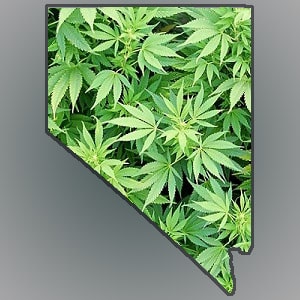 Medical Marijuana Dispensary Laws Get Even More Confusing In Nevada
Medical Marijuana Dispensary Laws Get Even More Confusing In Nevada
There was a big court decision in Nevada today, and there is a lot of talk about it on social media sites and e-mail groups I’m a member of. After doing some digging on google, I only found one media report about it, from the Las Vegas Review Journal. The case revolves around two men who were charged with drug-trafficking after their dispensary was raided. However, Judge Donald Mosley dismissed the case:
“It is apparent to the Court that the statutory scheme set out for the lawful distribution of medical marijuana is either poorly contemplated or purposely constructed to frustrate the implementation of constitutionally mandated access to the substance,” Mosley wrote in his decision. The Las Vegas Review Article went on to state that Judge Donald Mosley retired the same day the decision was issued.
It’s hard to tell how binding the decision will be. It sounds like Judge Mosley dismissed the case once before, and the prosecutors recharged the men on something slightly different. With Judge Mosley retired, what’s to stop the prosecutors from going for a third time? Also, the Las Vegas Review Article stated, “Mosley’s decision contradicts another from a Clark County judge allowing prosecution of six defendants from Jolly Green Meds.”
With two contradicting decisions, it’s going to be up to the Nevada Supreme Court to decide if the laws in question are constitutional or not, or whether the legislature needs to figure out the issue. In the meantime, medical marijuana dispensaries in Nevada are held in limbo. Just because a case was dismissed, doesn’t mean that medical marijuana dispensaries are legal. Far from it. It simply means that this particular judge on this particular case decided to not move forward with the prosecution.
Considering the judge is retired, and he may have a rare outlook on medical marijuana in Nevada, I wouldn’t take any chances if I was an aspiring Nevada medical marijuana dispensary owner. Law enforcement will no doubt go about business as usual, and until the Nevada Supreme Court renders a final decision on the issue, beating any charges if raided will be a roll of the dice.
There will be no public press conference for this case until Monday, so we will all just have to wait to get the inside scoop. Most people close to the case are having a good time on their Friday night; TWB just wanted to alert readers to this because it’s important, and apparently we don’t have anything exciting going on tonight! :)
The nexus of the legal argument being made in this Nevada case is basically the same as the legal argument made in the Leary v. United States case. According to the defendant’s attorney in the Nevada case, the only way the Nevada medical marijuana patient can obtain the medical marijuana is to break the law to get it (there is no way to legally obtain it). In the Leary case, you had to break the law in order to get a medical marijuana tax stamp. The logic in the Leary case is as follows:
a.“If read according to its terms, the Marihuana Tax Act compelled petitioner to expose himself to a “real and appreciable” risk of self-incrimination;
b. [The statute] required him, in the course of obtaining an order form, to identify himself not only as a transferee of marijuana but as a transferee who had not registered and paid the occupational tax;
c. Compliance with the transfer tax provisions would have required petitioner unmistakably to identify himself as a member of [a]…”selective” and “suspect” group, we can only decide that when read according to their terms these provisions created a “real and appreciable” hazard of incrimination.”
According to the Las Vegas Review Article, “Under the amendment, ratified by Nevada voters in 2000, “the Legislature shall provide by law for …appropriate methods for supply of the plant to patients authorized to use it.””
“The law falls short however in providing a realistic manner in which a qualified purchaser and a qualified distributor of marijuana may function, thus frustrating the clear intent of the Nevada Constitutional Amendment,” the judge’s decision read. “It is absurd to suppose that from an unspecified source ‘free’ marijuana will be provided to those who are lawfully empowered to receive it.”









